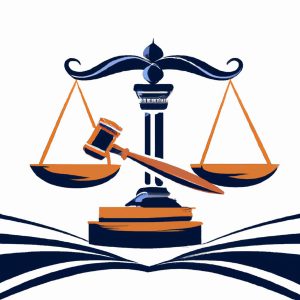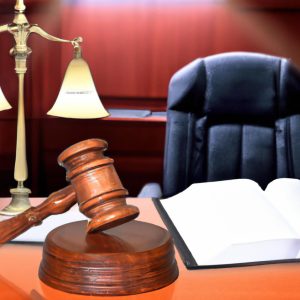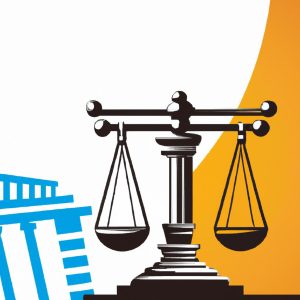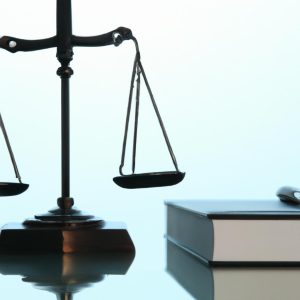In the intricate world of estate administration, uncovering a deceased person’s assets can be akin to solving a complex puzzle. As experienced legal practitioners at Morgan Legal Group in New York City, we understand the importance of efficiently navigating the process of locating and securing a loved one’s assets after their passing. Join us as we delve into the meticulous steps and strategies involved in the meticulous task of discovering a deceased individual’s assets and ensuring they are properly distributed according to the law.
Locating a Deceased Person’s Assets: A Comprehensive Guide
In the process of locating a deceased person’s assets, it is crucial to start by gathering important documents that may provide valuable information. These documents include the deceased person’s will, bank statements, tax returns, insurance policies, property deeds, and any other financial records. Organizing these documents in a systematic manner will help in identifying and tracking down all the assets belonging to the deceased individual.
Once the necessary documents have been gathered, the next step is to conduct a thorough search for the deceased person’s assets. This can involve searching through various databases, contacting financial institutions, and reviewing public records. It is important to pay close attention to details and be diligent in the search process to ensure that all assets are accounted for. Additionally, seeking the assistance of a professional such as a probate attorney can help in navigating the complexities of locating and managing a deceased person’s assets.
Understanding the Probate Process and Asset Distribution
When a loved one passes away, one of the most important steps in the probate process is locating and identifying their assets. Finding a deceased person’s assets can be a complex and time-consuming task, but it is crucial in order to ensure that the estate is distributed properly. Here are some tips to help you locate a deceased person’s assets:
1. Gather important documents: Start by gathering important documents such as the deceased person’s Will, bank statements, investment account statements, real estate deeds, and any other financial documents. These documents will help you get a clear picture of the deceased person’s assets.
2. Conduct a thorough search: Conduct a thorough search of the deceased person’s home, safe deposit boxes, and digital records for any additional documents that may list their assets. You may also want to consider hiring a professional to help you search for any hidden or undisclosed assets.
Utilizing Public Records and Online Resources for Asset Search
In order to conduct an asset search for a deceased person, it is crucial to utilize public records and online resources effectively. One of the first steps is to gather information about the deceased individual, including their full name, date of birth, Social Security number, and any known addresses or known assets they may have had. This information will be essential in conducting a thorough search across various databases.
Utilizing public records such as property records, court records, and bankruptcy filings can provide valuable insights into the deceased person’s assets. Online resources such as subscription-based databases, search engines, and social media platforms can also be useful in uncovering assets that may have been previously unknown. By conducting a comprehensive asset search, you can ensure that all of the deceased person’s assets are accounted for and properly distributed according to their wishes.
Seeking Legal Guidance in Asset Discovery and Estate Administration
When it comes to asset discovery and estate administration for a deceased individual, seeking legal guidance is crucial. At Morgan Legal Group, we specialize in assisting clients in locating, identifying, and managing the assets of the deceased. Our experienced team of attorneys is well-versed in the legal processes involved in probate and estate administration, ensuring a smooth and efficient handling of the deceased person’s assets.
One of the first steps in finding a deceased person’s assets is conducting a thorough search of their financial records, documents, and accounts. Our attorneys can help you navigate through the complexities of asset discovery by utilizing various legal tools and resources. Whether it’s locating hidden assets, obtaining information from financial institutions, or resolving disputes among beneficiaries, our legal team is dedicated to ensuring that the deceased person’s assets are properly identified and managed.
Q&A
Q: How can I find out if a deceased person had any assets?
A: There are a few steps you can take to determine if a deceased person had any assets.
Q: What is the first thing I should do to find a deceased person’s assets?
A: The first step is to gather important documents such as a death certificate, will, and any financial statements.
Q: How can I search for a deceased person’s assets online?
A: You can search for assets online by checking state unclaimed property websites, reviewing probate records, and searching public records.
Q: What should I do if I suspect a deceased person had assets but I can’t find any information?
A: If you believe there are assets but cannot find any information, consider hiring a professional such as a probate attorney or estate planning specialist to assist you in locating the assets.
Q: Are there any legal requirements for finding a deceased person’s assets?
A: Yes, there are legal requirements when searching for a deceased person’s assets, such as following state laws regarding probate and conducting a thorough search of all potential assets.
Q: What should I do if I locate assets belonging to a deceased person?
A: If you locate assets belonging to a deceased person, follow the necessary legal procedures to claim the assets and distribute them according to the deceased person’s will or state laws.
Q: Are there any resources available to help me find a deceased person’s assets?
A: Yes, there are resources available to help you find a deceased person’s assets, such as online databases, legal professionals, and government agencies.
In Retrospect
In conclusion, discovering a deceased person’s assets can be a challenging yet important process in settling their estate. By following the steps outlined in this guide, you can navigate through the complexities of locating and claiming these assets. Remember to exercise patience and diligence, as the process may require time and effort. With the right tools and resources, you can ensure that the deceased person’s assets are properly accounted for and distributed according to their wishes. We hope this article has provided you with useful insights and guidance on how to find a deceased person’s assets. Thank you for reading.
As we go through life, our assets accumulate as we work hard and save for the future. But when a loved one passes away, finding and accessing those assets can become a daunting and overwhelming task. In many cases, family members are left unaware of their loved one’s financial situation and are unsure about how to locate and claim their assets. However, with the right information and guidance, the process can become much easier. In this article, we will discuss how to find a deceased person’s assets, step by step, in order to help you navigate this difficult situation.
1. Start with Basic Research
The first step in finding a deceased person’s assets is to begin with some basic research. This could include contacting their lawyer, financial advisor, or bank to see if they have any documentation or information regarding the deceased’s assets. You can also check with the person’s employer, insurance companies, and pension providers to see if they have any records of assets or benefits that may be owed to the deceased.
2. Look for a Will or Estate Plan
If the deceased person had a will or an estate plan, this will serve as a roadmap for locating and distributing their assets. Wills are legal documents that outline how the deceased wants their assets to be distributed among their beneficiaries. In the absence of a will, state laws will dictate how the assets are divided. Therefore, it is crucial to locate a will or estate plan to ensure that the deceased’s wishes are carried out.
3. Check for Life Insurance Policies
Life insurance policies are a common asset that many people have. Therefore, it is essential to check if the deceased had any life insurance policies in place. If so, the beneficiaries named in the policy can claim the death benefits. Policies can be found in various places, including safety deposit boxes, home safes, or in the deceased’s email or physical mail. If you are unable to locate any policies, you can also check with the state’s unclaimed property office to see if the deceased had any unclaimed life insurance benefits.
4. Review Tax Returns and Bank Statements
Another way to find a deceased person’s assets is by reviewing their tax returns and bank statements. These documents provide a detailed overview of the deceased’s financial activity and could reveal assets that you were not aware of. By reviewing these documents, you can also identify any debts owed by the deceased, which will need to be settled before the assets can be distributed.
5. Conduct a Title Search
Real estate and other properties are common assets that are often left behind by a deceased person. To find any real estate holdings, you can conduct a title search on the county’s property records where the deceased lived. This search will reveal if the person owned any property and will also list any liens or mortgages attached to it.
6. Search for Digital Assets
In today’s digital age, it is not uncommon for people to have significant digital assets, such as cryptocurrency, online banking accounts, and social media accounts. These assets can easily be overlooked, so it is crucial to conduct a thorough search for any digital assets the deceased may have had. This could include checking their email accounts, social media profiles, and any other online accounts they may have used.
7. Hire a Professional
If you are having trouble locating a deceased person’s assets or are unsure about the legal procedures involved in claiming them, you may want to consider hiring a professional. Estate lawyers, probate attorneys, and financial advisors have the knowledge and experience to help you navigate this process and ensure that you are not missing any crucial steps.
In conclusion, finding a deceased person’s assets can be a complex and emotional process. However, by following the steps outlined in this article and seeking professional guidance if necessary, you can locate and claim the assets of your loved one efficiently and effectively. Remember to be thorough in your search and to keep detailed records of all the assets you find. By doing so, you can ensure that the deceased’s wishes are fulfilled and their assets are distributed in a timely and proper manner.





